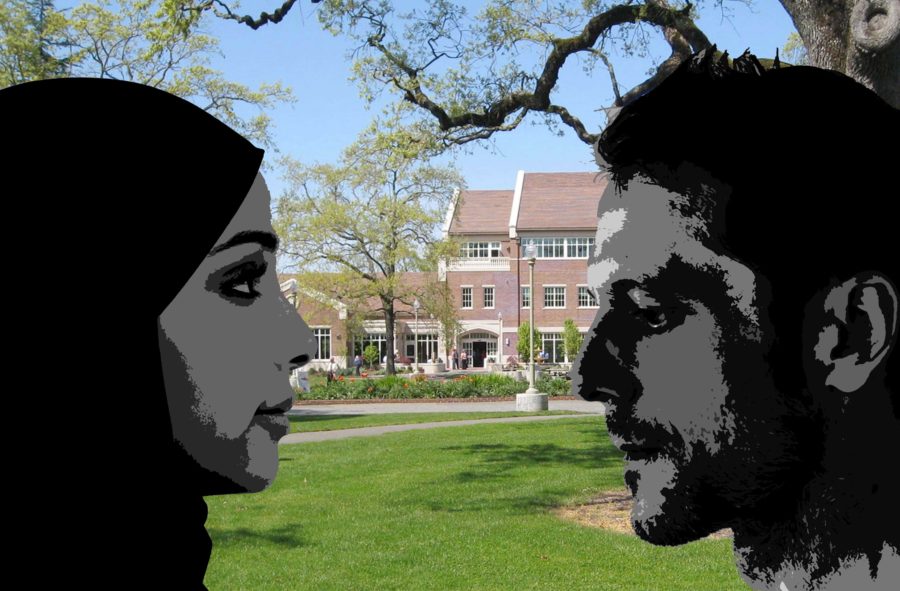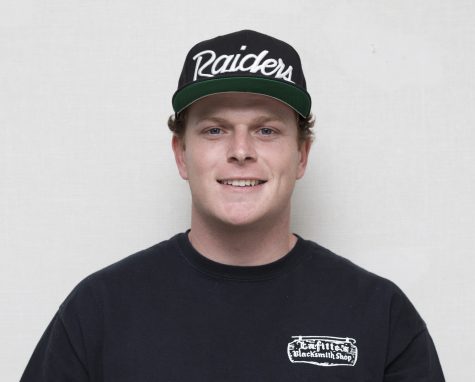The best way to break stigmas is education. Accordingly, Santa Rosa Junior College hosted a seminar March 8 on the growing issue of fear towards Islam in the United States.
The seminar, titled “Islamophobia: Islam in the American Imagination” and led by author May Kosba, came in response to President Donald Trump’s inflammatory rhetoric and the rise of hate crimes against Muslims in this country. In 2015, the FBI reported a 67 percent increase in hate crimes against Muslims than the previous year.
“Now seems like a great time to have a discussion. I think it increases the amount of information there is for people to use to understand what Islam is all about,” said Jaime Wright, SRJC sociology instructor and organizer of the event. “With the current administration it has just reached a fever pitch, and Islamophobia is driving so much of our policy in our national conversation.”
From the beginning of his campaign and continuing into his presidency, Trump’s rhetoric has played a part in the growing issue of Islamophobia. One remark, which received heavy criticism came during his presidential campaign after the 2015 terrorist attack in San Bernardino. Trump said, “Donald J. Trump is calling for a total and complete shutdown of Muslims entering the United States until our country’s representatives can figure out what the hell is going on.”
Because of Trump’s aggressive tone toward Islam and his policies directed towards Muslims, specifically the infamous travel ban, some Muslim students at SRJC feel targeted.
“I feel uncomfortable, for sure. If I make a mistake, blame me and not Islam. We are all doing mistakes. Don’t generalize and don’t target a specific religion or a specific community,” said Mahmoud, an international student from Egypt. “Every time I hear a speech from President Trump, he is always targeting our religion, accusing us of terrorism.”
Abeer Najdawi, a student with Jordanian background, said it is good that SRJC hosted a seminar to discuss the rise of Islamophobia.
“All the world is talking about this problem and it’s important to identify what Islam really is. Islam doesn’t mean terrorism; it is a call for peace,” she said.
Approximately 250 students and staff attended the event in Newman Auditorium. Kosba, who co-wrote “Hello, It’s a Muslim Calling,” a book which narrates the view of the world through the eyes of a Muslim, defined Islamophobia as a worldview involving an unfounded dread and dislike of Muslims, which results in practices of exclusion and discrimination.
“Islamophobia takes the form of suspicion, staring, hazing, mockery, rejection, stigmatizing and outright discrimination. In other places, it may take the form of indirect discrimination, hate speech or denial of access to goods or services,” Kosba said.
Acts like these have been steadily increasing for years, and are reaching an all-time high due to world events and the new administration’s exclusionary rhetoric directed towards Arabs and Muslims.
The number of hate groups operating in America reached 917 in 2016, according to the FBI. Seven charitable foundations spent $42.6 million in the years after 9/11 to support the spread of anti-Muslim rhetoric and hate crimes. These acts can range from hate speech to the taking of innocent lives.
“People lives are impacted and disrupted by that. Women who are wearing the hijab will probably think twice before going out. Many of them have taken off their veil because they feel uncomfortable walking in public [with it],” Kosba said. “Many people are considering going back to their home countries even though they were born in the United States because they feel like they are not accepted anymore.”





Jaime Wright • Mar 21, 2017 at 4:40 pm
I just want to correct the record/clarify regarding the organizing of the event. All credit should go to our sociology club: the Sociology Circle. We worked as a team to make sure this event happened.